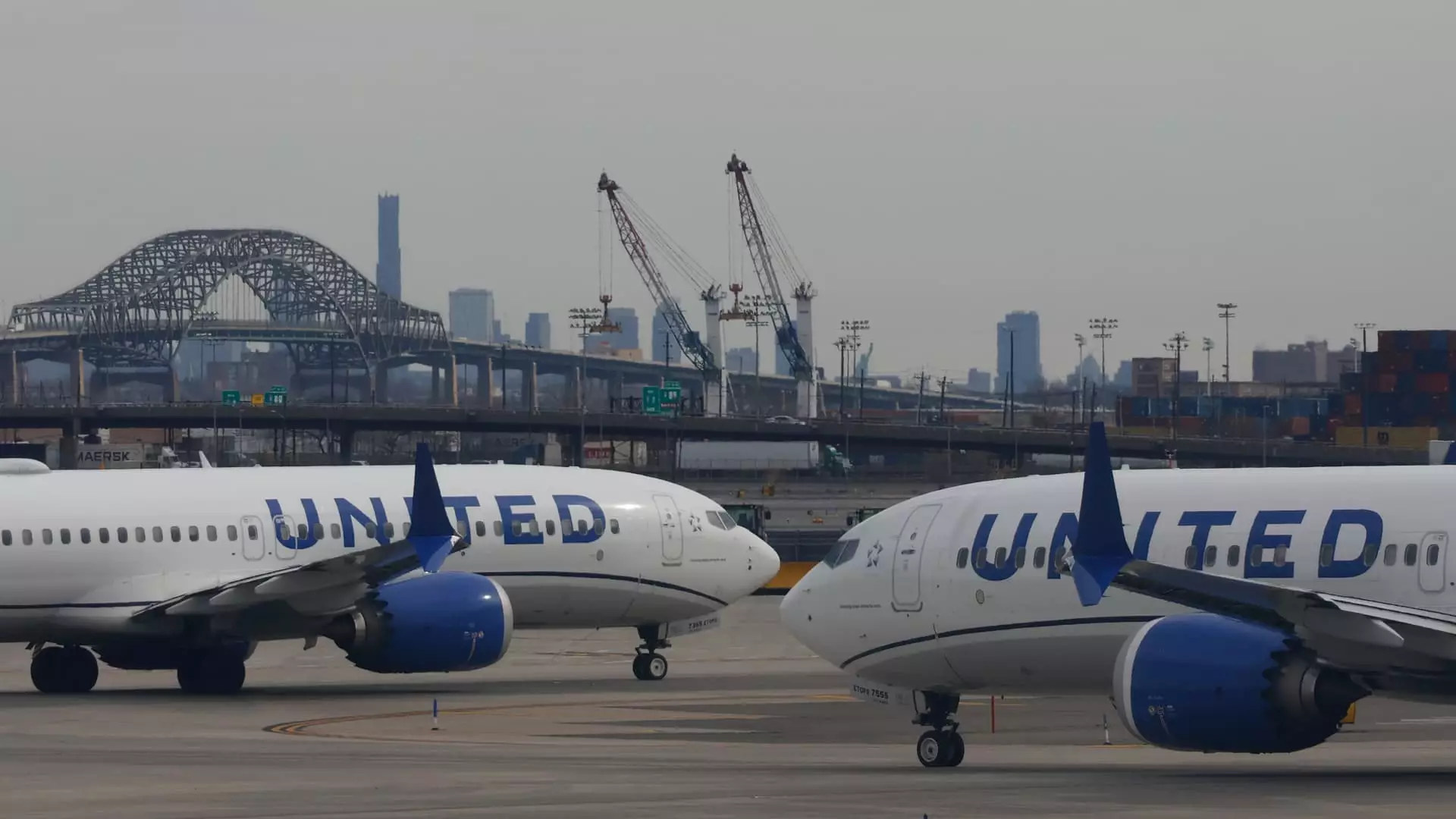United Airlines has decided to cancel a staggering 35 daily roundtrip flights from Newark Liberty International Airport—a move that at first glance might seem like just another operational hiccup in the tangled web of air travel logistics, but in reality, it is a symptom of a larger systemic failure. The decision comes on the heels of massive delays and chaos that plagued the airport this past week, casting a shadow over what should be a well-oiled machine of air travel. With the disruptions attributed to staffing shortages among air traffic controllers and failures within the Federal Aviation Administration’s technology, one has to wonder why such vulnerabilities persist when public trust is on the line and travel season is usually at its peak.
CEO Scott Kirby expressed disappointment, emphasizing the need to protect customers as operations struggled under the weight of a flawed infrastructure. It’s hard not to feel angered by the casual dismissal of passenger experience when critical shortcomings like this linger unaddressed. Every cancellation and delay doesn’t just inconvenience travelers; it reverberates throughout the economy and undermines the very foundation of trust that passengers put in airlines to transport them safely and efficiently.
Aging Infrastructure and Ineffective Management
The crux of the problem lies not merely in staffing shortages or technology failures—these are symptomatic of a far more insidious issue: an aviation infrastructure that has been neglected and underfunded. The FAA has long been criticized for its failure to adapt to the growing demands of air travel, with some air traffic facilities still relying on outdated systems. The decision to reassign controllers from facilities in New York to Philadelphia instead of directly addressing the acute staffing issues at Newark feels like a desperate attempt to resolve a crisis with band-aid solutions rather than systemic changes.
Kirby appeared to hint at a glimmer of hope for real reform when he acknowledged the previous administration’s commitment to investing in air traffic control infrastructure. This suggests a political willingness to tackle these issues, but tangible change continues to be delayed. When Transportation Secretary Sean Duffy echoed calls for a complete reform of the air traffic control system, one could argue that this is less a matter of governance and more a signal of an impending crisis that many have seen coming for years. To ignore such a call for action is to invite further chaos not only on the ground but also in the skies.
Airline Responsibility vs. Regulatory Inertia
The burden should not fall solely on airlines like United. While Kirby’s statement did call for regulatory intervention to impose stricter flight capacity controls akin to those at the notoriously congested LaGuardia and Reagan National airports, the question remains—why is there such an apparent inertia from regulatory bodies? Why are technological improvements stalled when the stakes include both passenger safety and airline reputations?
United’s delayed customer service response and willingness to waive change fees underscore the airline’s struggle to maintain customer loyalty amid systemic failures. But let’s be candid—these efforts feel reactive rather than proactive, merely trying to salvage reputation rather than genuinely enhancing consumer experience.
The Broader Implications of Travel Disruptions
This disruption at Newark poses broader implications not just for United Airlines but for the entire aviation industry and economy. With tourism experiencing a tentative rebound post-pandemic, such failures can erode consumer confidence in traveling. The unpredictability of flight schedules can deter potential travelers—regions dependent on tourism could face economic repercussions.
In the end, dismantling the layers of inefficiency and negligence requires genuine commitment, immediate investment in infrastructure, and a steadfast will from both the regulatory agencies and airline executives. The clock is ticking, and as we head into a crucial travel season, the voices of frustrated passengers heighten the urgency for action. Air travel shouldn’t just be a gamble on timeliness; it should be a well-calibrated promise of reliable transit.

